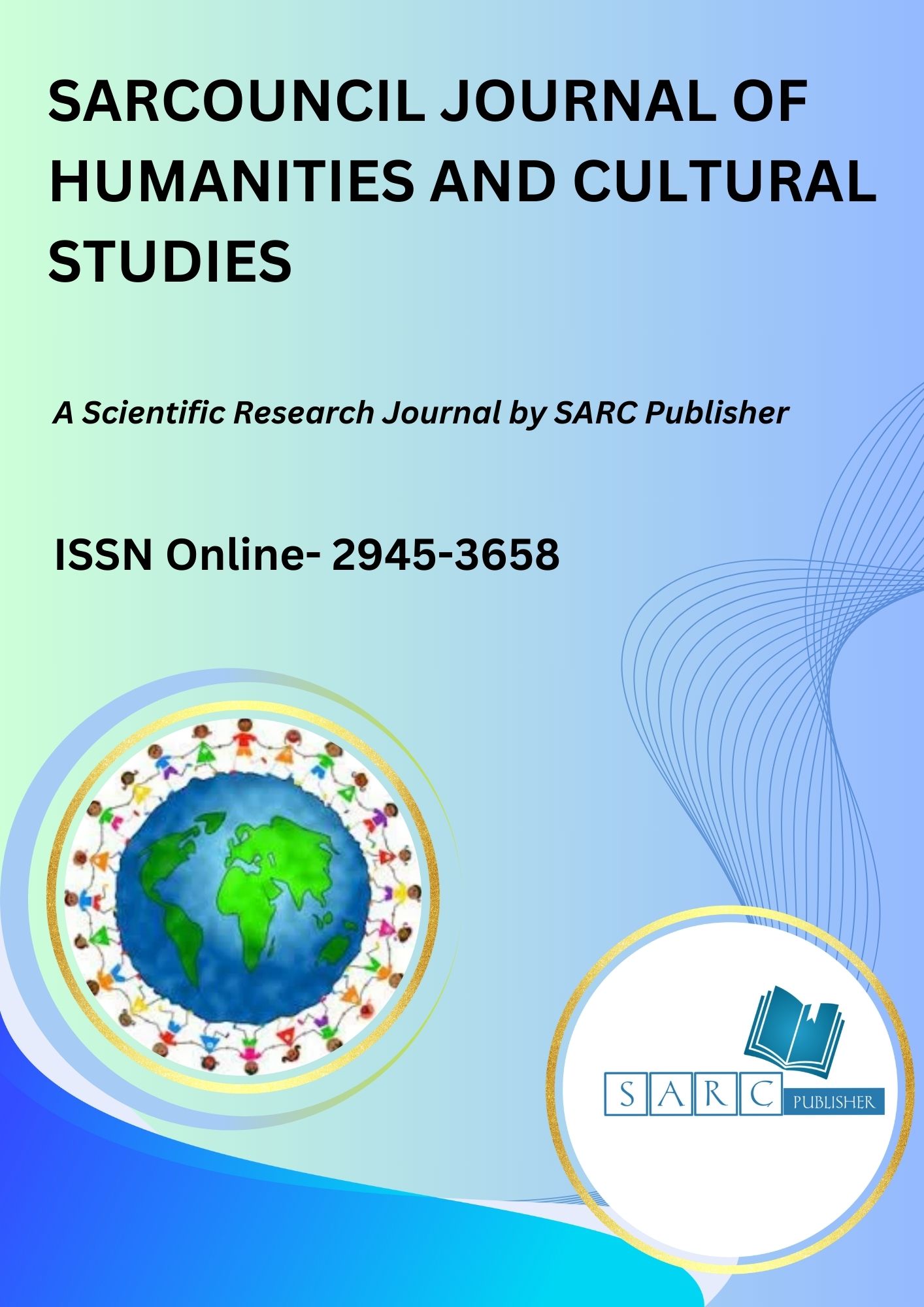Sarcouncil Journal of Humanities and Cultural Studies

Sarcouncil Journal of Humanities and Cultural Studies
An Open access peer reviewed international Journal
Publication Frequency- Bi-Monthly
Publisher Name-SARC Publisher
ISSN Online- 2945-3658
Country of origin-PHILIPPINES
Impact Factor- 3.6
Language- Multilingual
Keywords
- Anthropology Business studies, Communication studies, Corporate governance Criminology ,Cross-cultural studies, Demography Development studies, Economics Education, Ethics, Geography, History, Industrial relations, Information science, International relations, Library science, Linguistics Literature.
Editors

Dr Hazim Abdul-Rahman
Associate Editor
Sarcouncil Journal of Applied Sciences

Entessar Al Jbawi
Associate Editor
Sarcouncil Journal of Multidisciplinary

Rishabh Rajesh Shanbhag
Associate Editor
Sarcouncil Journal of Engineering and Computer Sciences

Dr Md. Rezowan ur Rahman
Associate Editor
Sarcouncil Journal of Biomedical Sciences

Dr Ifeoma Christy
Associate Editor
Sarcouncil Journal of Entrepreneurship And Business Management
Dystopian and Totalitarian Societies in the Handmaid’s Tale, Fahrenheit 451, and 1984
Keywords: Dystopian, Fiction, Control, Disciplinary, Totalitarianism
Abstract: This study examines three works of dystopian fiction that concern themselves with the rise of “disciplinary” and “control” societies from the nineteenth to the twentieth century. At the center of the three novels chosen is the question of power, or more precisely, of absolute power— power concentrated in the hands of the few or an individual. Each novel focuses on a major aspect of human existence that power wants to control absolutely. In The Handmaids’ Tale, it is female sexuality; in Fahrenheit 451, the control of the free flow of information; and in 1984, it is thought and language. In all three novels, dystopia is essentially defined as the loss of individual freedom or civil and democratic liberties, and where a system, institution or organization suppresses the many values represented by liberal humanism (i.e., individualism, freedom of speech, freedom of the flow of information, freedom to control your own body, sexuality). The paper attempts to evoke the dangers of totalitarian societies where human beings have lost all individual rights and liberties. The dystopian novels under study are famous for highlighting the various mechanisms of absolute power, how it touches one’s very own body, choices, destiny, thought, and language
Author
- Renea Lee B. Alcantara
- Faculty; Department of English and Humanities; College of Arts and Social Sciences; Central Luzon State University; Science City of Muñoz; Nueva Ecija 3120 Philippines
- Mercedita M. Reyes
- Central Luzon State University; Science City of Muñoz; Nueva Ecija; Philippines
- Christine L. Saturno
- Faculty; Department of English and Humanities; College of Arts and Social Sciences; Central Luzon State University; Science City of Muñoz; Nueva Ecija 3120 Philippines.

